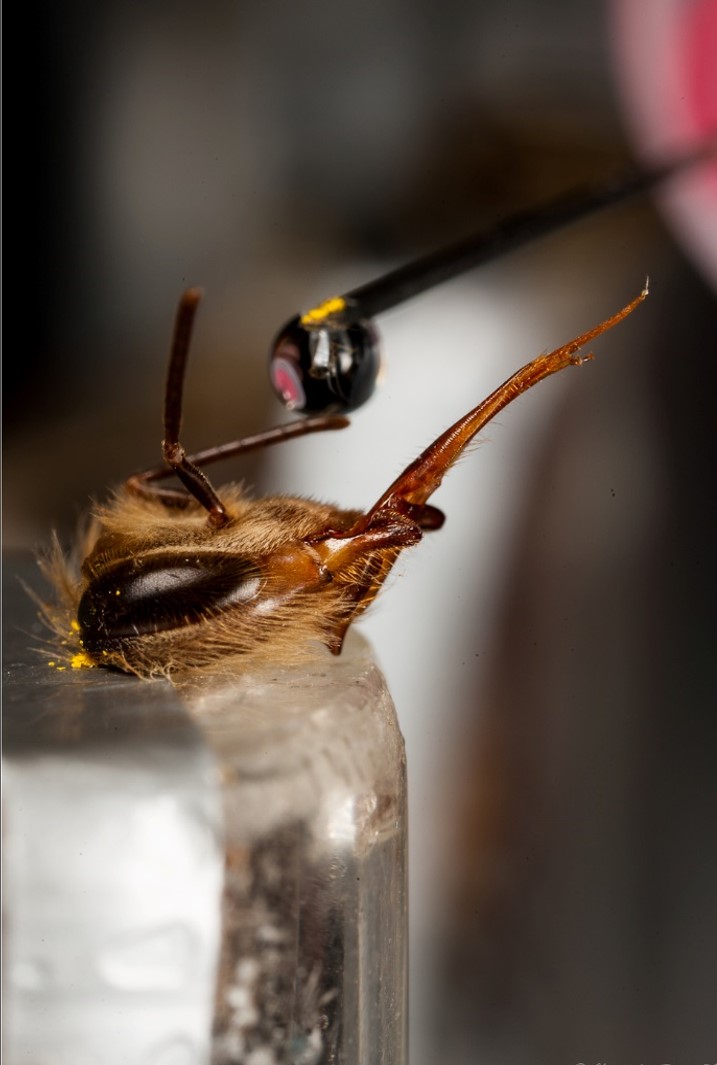Declining pollinator (bee) health is now a global concern. The honeybee plays an economically important role with its pollination of agricultural crops being valued at $15 billion in the US and 22 billion EURO in the EU each year. The maintenance of energetic homeostasis and appetite regulation are both well-studied areas, but how the two are connected mechanistically remains largely unknown. In flying insects, energy demands can change rapidly. Furthermore, given their small size they lack significant energy storage space. This is especially true for invertebrates, which primarily rely on trehalose and not glucose to indirectly fuel life activities. By mapping the relationship between energetic stress, physiological response, and behavior, this research will lead to new ways to improve beekeeping management practices to ameliorate energetic stress and improve honeybee health. The long-term goal of this project is to understand the neural basis between fluctuating blood sugar levels and appetite regulation as the bee ages, so we can understand how the two can become uncoupled with a parasitic infection.
The project is entitled “Regulation of honey bee appetite independent of the glucose insulin signaling pathway”. This project will be carried out in collaboration with neighboring Batu Erman’s lab at Sabancı University but be led by the Mayack lab. The goal of the project is to determine if appetite levels are linked to fluctuating trehalose levels in the bee hemolymph and to see if this is mediated by octopomine release in the brain. Overall, the project seeks to develop a general theory for how the honey bee forager is able to rapidly and precisely control its appetite with large fluctuating demands in energy consumption. A mechanism independent of the glucose-signaling pathway, which more directly links the energetic state of the individual to appetite levels may play a major role in the rapid and precise regulation of appetite. Students will be involved in measuring honey bee appetite using the Proboscis Extension Assay, injecting sugars and pharmacological reagents into honey bees, quantifying neurotransmitters using HPLC and qPCR, using immunohistochemistry to map octopamine subtype receptors in the bee brain, and CRISPR-CAS-9 techniques for octopamine receptor knockdown.

About Project Supervisors
Dr. Christopher Mayack
Assistant Professor
Molecular Biology, Genetics and Bioengineering Program
Faculty of Engineering and Natural Sciences
Sabanci University
Orhanli, Tuzla, Istanbul 34956 Turkey
Office: FENS 2061
Phone: +90-216-568-7038
e-mail: cmayack@sabanciuniv.edu
.jpg)